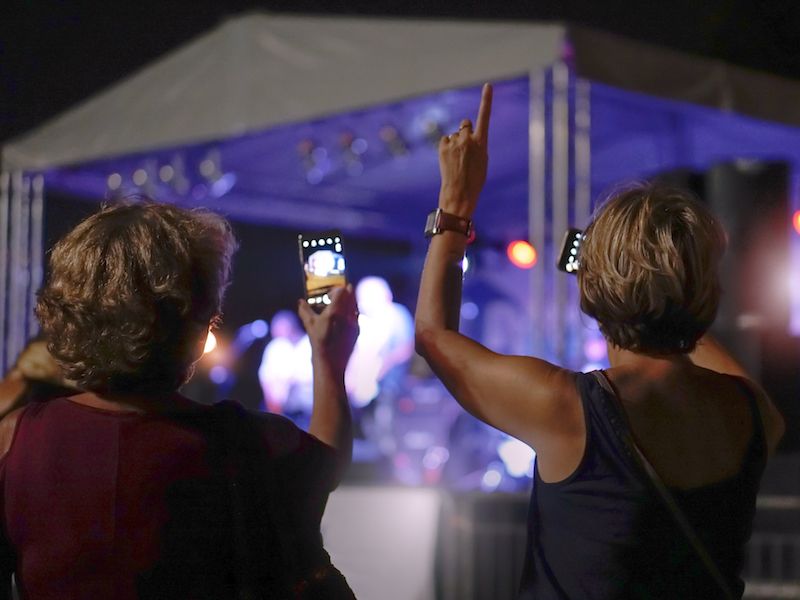
We’ve been looking forward to summer fun all year: trips to the beach, relaxing by the pool, and impaired hearing? You could find yourself in external situations or exposed to other loud noises this summer that are hidden risks to your ears. Any sounds above 80 decibels can cause harm to your ears, while swimming in pools or other bodies of water can cause enduring loss of hearing. To keep your hearing safe and sound this summer, you need to be aware of your environment and take precautions. Keep on reading to discover the summer’s 6 hidden dangers to your ears.
Wear Hearing Protection at Concerts
The summer season is concert time, but even if you go to a venue, you still should attend to your hearing. Live music can reach over 90 decibels, even at outside concerts, which is within the danger zone of hearing loss. So whether you’re attending an inside or outside concerts, it’s a good idea to use earplugs. You can still hear the sounds with earplugs in it’s just dampened a little. If you’re going to a show with young kids, think about getting them a heavy duty set of earmuffs since their hearing is much more sensitive than those of adults.
Fireworks Are More Than Just Loud
Honestly, there are a lot of reasons to avoid fireworks in the summer. It’s not just the 4th of July shows that are professional that can harm your ears, we mean the backyard fireworks that lead to hundreds of injuries throughout the summer. Backyard fireworks reach volume levels of over 155 which can damage your ears on top of causing hand injuries, blindness and home fires. This year, on the 4th of July, appreciate the show from a distance and leave the fireworks to the pro’s.
Lawnmowers Can Bring About Loss of Hearing
If you’re really serious about your yard, chances are you’re out there every week on your lawnmower, trimming your bushes and using your edger. But that muffled feeling in your ears is a signal that your ears have taken damage. That’s because the constant noise from your lawn tools have a slow and steady impact on your hearing. Perhaps you’ve noticed lawn professionals using some form of hearing protection, next time you do yard work with noisy power equipment, you need to take a hint from them and use earplugs or earmuffs.
Hears How to Safeguard Your Hearing When You go Swimming
Huge numbers of people suffer from swimmer’s ear each summer, which happens when bacteria-loaded water gets trapped inside your ear canal. Swelling and painful earaches are the result when the ear gets infected by the bacteria. It’s not just lakes and rivers that hold these bacteria, they can also be found in pools and hot tubs if they are not cleaned and treated correctly. But if you have your ears treated by a hearing expert you will probably be fine, and no permanent hearing loss will occur. To protect against swimmer’s ear, however, you should wear specialized swimming earplugs in the pool and have your pool water tested to make sure the chemical balance is safe.
Water Sports And Boats
If you enjoy the water, summertime is beach and boating time for you. But, jet ski and boat engines are usually loud,we’re talking over 100 decibels. Sustained exposure to that kind of noise for a period of about 15 minutes can cause long-term hearing damage. In this circumstance also, putting on a set of throw away foam earplugs is a smart idea.
Your Hearing Can be Harmed by Car Races
It doesn’t make a difference what kind of auto racing you like, motorcycle, midget, Formula 1, drag racing or stock cars. All of them can cause a huge issue for your hearing if you attend race after race this summer. 120 dB is inside of the danger zone for hearing impairment and a number of races go way above this. Earplugs are your best bet at these races, although your kids should definitely wear the earmuffs which were mentioned earlier. Because you might not get to appreciate the sounds of any races in the future if you don’t.






